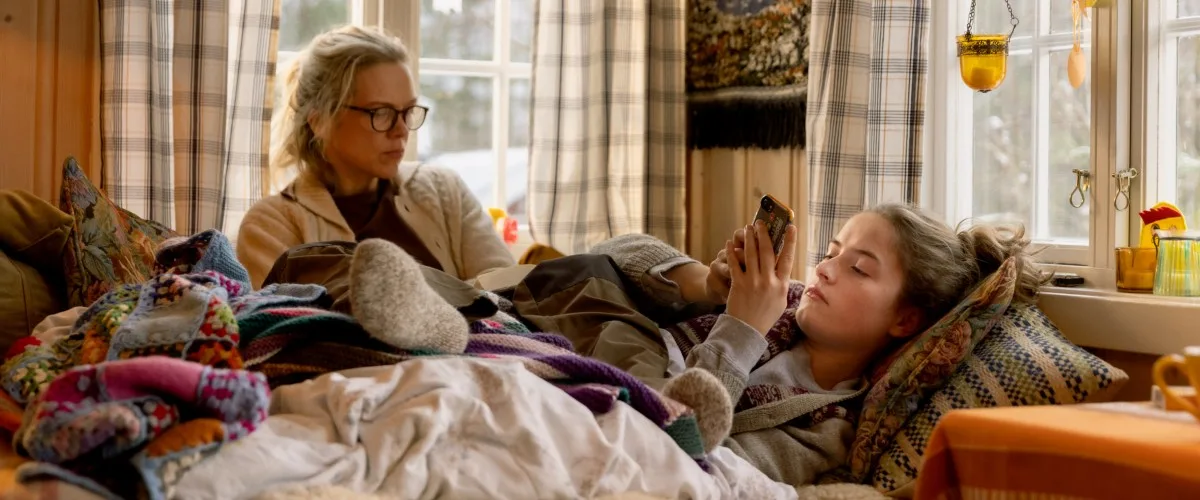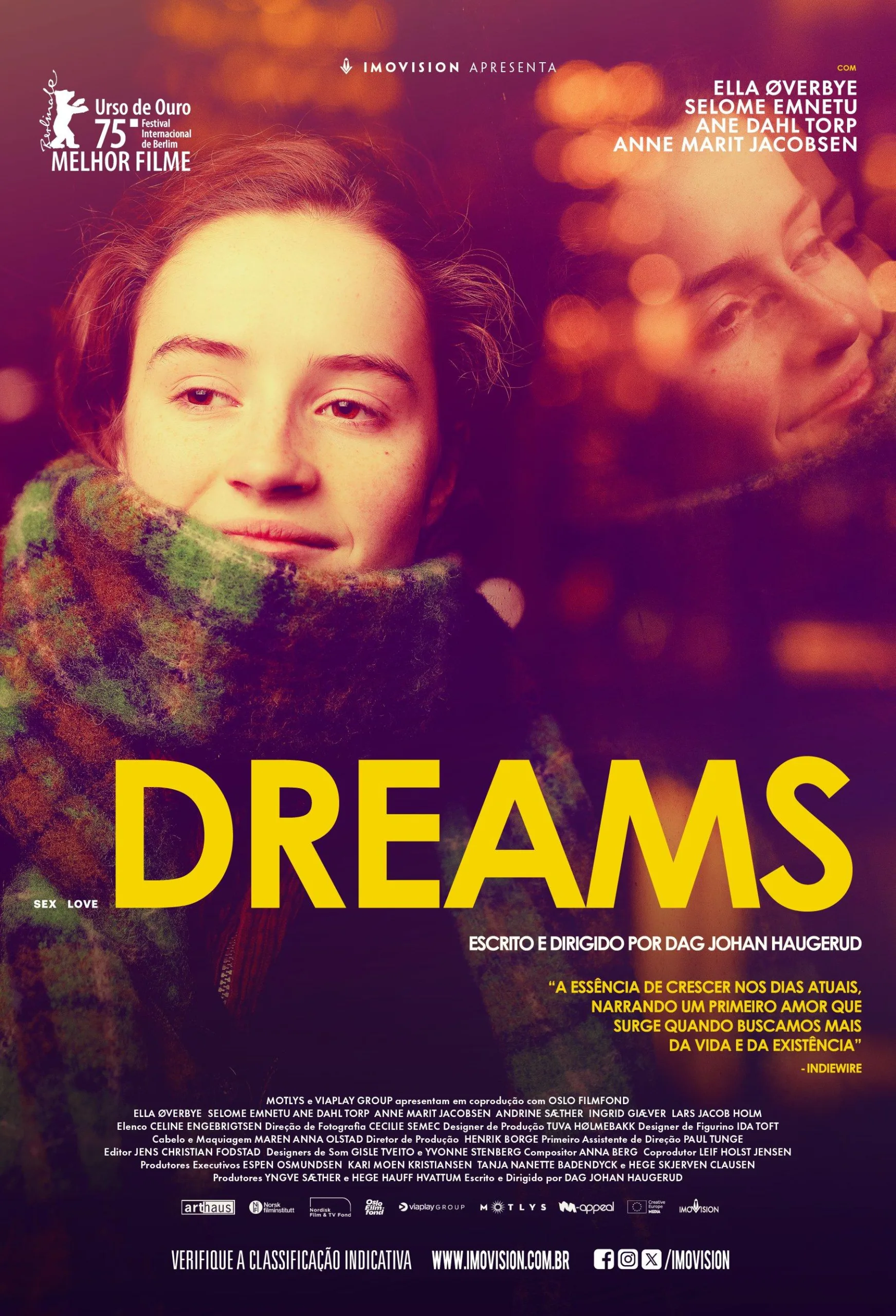In hindsight, it makes sense to release “Dreams” after the other two entries in the “Oslo trilogy,” Norwegian novelist-turned-filmmaker Dag Johan Haugerud’s loosely related trio of romantic dramas. These three movies don’t share a common narrative or characters, but they do refer to similar preoccupations, especially given their protagonists’ questions about their respective sexual orientations and identities.
“Love,” the first movie in the trilogy to be released in America, establishes a key theme: what makes Oslo so vital, both as a shared setting of the movies and as a major world city, is its range of perspectives and backgrounds. “Dreams” continues that theme by shifting Haugerud’s focus from childless, unattached adults searching for compatible romantic partners to a pair of middle-aged white dudes who may not be as straight as they thought.
Now there’s “Dreams,” a coming-of-age story about a teenager who tries to make sense of her feelings by keeping a journal. Johanne (Ella Øverbye) has a crush on her inviting teacher Johanna (Selome Emnetu), but is afraid to tell anyone, least of all her inattentive mother Kristin (Ane Dahl Torp). For a while, Johanne keeps her fixation with Johanna to herself until she decides it’s time to show her diary to her grandmother Karin (Ingrid Giæver), a novelist. Nan then encourages Mum to read Johanne’s diary, and what starts as a one-sided and highly selective look at a teenage girl’s first crush turns into a negligibly complex drama about who gets to tell whose story.
“Dreams” has more in common with “Sex” than “Love” since both “Dreams” and “Sex” have more to do with the consequences of sharing your experiences with your loved ones. The urge to label and diagnose Johanne’s emotions soon overwhelms the essential process of sitting with her potentially confusing emotions. Also, while Johanne’s a high schooler, she’s 17 and doesn’t seem to have been taken advantage of by her teacher. Ultimately, Johanne and Johanna’s relationship isn’t as scandalous as it first seems, even though Haugerud relies heavily on the suggestion that something untoward could have happened. Eventually, Haugerud appears more hung up on how we judge our loved ones than how we feel our way through our emotions.
Like both “Love” and “Sex” before it, “Dreams” doesn’t have an urgent plot or a clear resolution. “Dreams” mostly hops back and forth between Johanne, whose perspective is mostly represented through voiceover narration, and the increasingly excited scenes of both Kristin and Frøydis. At first, Kristin worries that Johanne’s writing might either conceal something or expose her to a world of harm. She eventually sees the value in her daughter’s journaling. Frøydis, on the other hand, starts by encouraging her granddaughter and slowly, but mildly, changes her mind from there.
Most of our understanding of these three main characters comes from Johanne, as in a handful of scenes where she unpacks her mom and grandma’s respective ways of thinking. It’s hard to say whether Kristin and Frøydis’s thoughts either confirm or frustrate Johanne’s point of view. That’s especially irritating as both Kristin and Frøydis lavish praise on Johanne’s writing, which only really adds ornamental detail to handsomely visualized flashbacks. Some of Johanne’s descriptions of how she feels still resonate, given their plain-spoken and earnest language.
It’s still hard to know why Haugerud insists on having Kristin and Frøydis repeatedly praise the alleged maturity and style of Johanne’s writing. Maybe our inability to know much about Johanne’s writing is meant to be a running joke? The movie’s whimsical conclusion provides some answers, but leaves us to decide why it matters what others think if the person who’s processing their emotions is still figuring things out for themselves.
“Dreams” shares a number of the qualities that make both “Love” and, to a lesser extent, “Sex” so refreshing. “Dreams” also studiously avoids a number of cliches, only to leave viewers to judge a love-sick 17-year-old’s understanding of the world. This kind of pseudo-artful ambiguity only adds so much when the filmmakers put more effort into thwarting our expectations than giving us enough information to have an informed opinion.
“Dreams” winds up leading viewers to feel both mildly implicated and overwhelmingly frustrated as Johanne’s narrative gradually veers from questions about what really happened to Johanne to why we care in the first place. It’s a character-driven drama populated by sketchy characters who are mostly compelling thanks to the movie’s strong ensemble cast and Haugerud’s typically sensitive direction. So unfortunately, the suggestive power of Johanne’s journey fades as the movie slowly heads to its inconclusive finale. Haugerud may have made the movie he wanted to, but I can’t really praise “Dreams” more strongly than that.




















